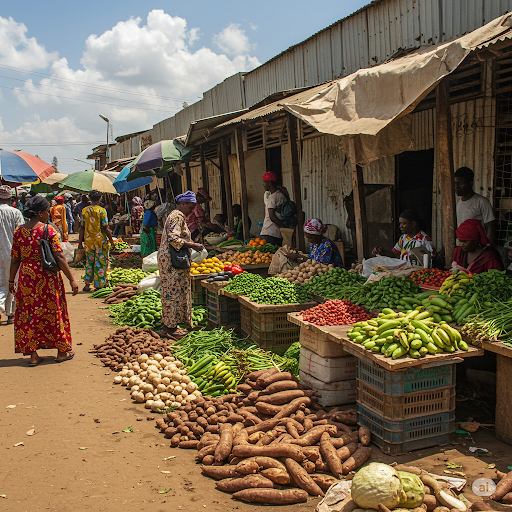Broadcasting
Stakeholders Caution ICPC Over Moves to Scuttle Digital Switch-over

Following the recent moves by some top officials of the Independent Corrupt Practices and Other Related Offences Commission (ICPC) to disrupt the hitherto smooth migration from analogue to digital broadcasting in Nigeria, stakeholders in the broadcasting industry have called on the Presidency to investigate the activities of the ICPC in this regard.
They submitted that the recent media attack on Mallam Is’haq Modibbo Kawu could derail the credible project if the anti-corruption agency is not checkmated..
‘What we are saying is that if the ICPC really has a case against NBC and others, why not charge them to court instead of embarking on a media trial? It is obvious that the ICPC has no case against NBC, hence it embarked on this media blitz to distract NBC from forging ahead with its good job,’ said a stakeholder who craved anonymity.
The media was agog over a statement credited to the spokesperson of the ICPC, Mrs Rasheedat Okoduwa, who claimed that the agency was investigating an alleged N2.5bn fraud leveled against the DG of National Broadcasting Commission (NBC), Dr Moddibo Kawu, and other top officials of the commission.
She added that the money involved was a grant released to the agency by the Federal Government for its digital switch-over programme.
The statement further said, “The Presidency in 2016, released N10bn to the Ministry of Information and Culture for the digital switch-over programme which entails migration of telephone lines from analogue to digital platforms and a white paper was issued directing that the process be specifically handled by government-affiliated companies.
“Based on the guidelines provided by the white paper, two companies were nominated to handle the process, one of which was ITS, an affiliate of the Nigerian Television Authority. N1.7bn was released to it as seed grant for the commencement of the switch-over.”
Okoduwa added that the agency discovered that the process was fraught with alleged corrupt practices.
The statement also alleged that Kawu fraudulently recommended a private company, Pinnacle Communications Limited, to the Minister of Information and Culture, Lai Mohammed, for the release of the money against the guidelines contained in the said white paper.
The ICPC’s statement was debunked in a statement by the spokesperson of NBC, Hajia Maimuna Jimada. She said, “The NBC is not aware of any fraud case involving the DG, and therefore not aware of any ICPC investigation on the DG.”
Jimada said the commission had been carrying out the digital switch-over scheme with utmost diligence and transparency, and would continue to do that till the project is completed across the country.
Broadcasting
E-commerce Lessons for Scaling Nigeria’s Food Distribution

By Diana Tenebe, Chief Operating Officer, Foodstuff Store
Nigeria stands at the cusp of an agricultural revolution with the ambitious plan to significantly transform its food and agriculture sector through the launch of the $510 million Special Agro-Industrial Processing Zones (SAPZ), financed by the African Development Bank and development partners. Fueled by the integration of cutting-edge technologies aimed at boosting food production and ensuring national food security. However, as yields increase, a formidable hurdle remains: the efficient and scalable distribution of this bounty across the nation’s diverse landscapes, often hampered by infrastructural limitations and logistical complexities.

Dr. Bosun Tijani, the Minister of Communication, Innovation, and Digital Economy, recently called on Nigerian farmers to prepare for digital and technologically advanced farming methods, emphasising their crucial role in boosting food production and security. Building upon this call for technological integration, and to truly unlock the full potential of Nigerian agriculture and ensure increased harvests translate to accessible and affordable food for all, the sector can draw invaluable lessons from the operational prowess of e-commerce giants like Amazon. Their success in navigating complex logistics and reaching vast customer bases offers a compelling blueprint for transforming Nigeria’s food distribution network.
Amazon’s dominance in the e-commerce realm is underpinned by a meticulously crafted logistics and supply chain system. Their significant investments in sprawling fulfillment networks, coupled with the strategic deployment of technology for route optimisation and real-time inventory tracking, have created an unparalleled engine for moving goods swiftly and efficiently. Furthermore, their optimisation of last-mile delivery, integration of automation within warehouses, and a hybrid approach blending in-house capabilities with shrewd partnerships underscore their commitment to scalability. This intricate ecosystem is designed to handle massive volumes and adapt to fluctuating demands – a crucial capability that Nigeria’s agricultural sector desperately needs.
Translating these principles to the Nigerian context requires a fundamental shift towards building a resilient delivery infrastructure specifically tailored for agricultural produce. This necessitates moving beyond traditional, often inefficient methods and embracing hybrid transportation models that account for varying road conditions and geographical challenges. Imagine a network that leverages a combination of refrigerated trucks for long-haul transport, smaller vehicles for navigating local terrains, and even innovative solutions like riverine transport where feasible. Integrating technologies like GPS tracking for real-time visibility of produce movement and strategically establishing a network of collection and distribution hubs across key agricultural zones can significantly streamline the flow of goods.
Implementing robust systems for real-time tracking of harvests and produce, mirroring Amazon’s inventory management, will be crucial in minimising spoilage and maximizing freshness as food travels from farm to consumer. Moreover, forging strategic alliances with existing local logistics providers, leveraging their on-the-ground knowledge and infrastructure, can provide a vital springboard for building a comprehensive network without starting entirely from scratch.
Beyond the physical movement of goods, the power of data, a cornerstone of Amazon’s success, holds immense potential for revolutionising Nigerian food distribution. Leveraging data analytics can provide invaluable insights into regional demand patterns, allowing for more accurate forecasting of optimal harvest and distribution times. This data-driven approach can help match agricultural supply with consumer needs with greater precision, reducing waste and ensuring that the right produce reaches the right markets at the right time – much like Amazon utilizes data for personalized recommendations and understanding customer purchase behavior. Imagine farmers making informed decisions about planting based on predicted market demands or logistics providers optimizing routes based on real-time demand fluctuations.
Furthermore, adopting Amazon’s unwavering focus on customer convenience and trust is paramount, especially when dealing with perishable goods. Establishing reliable delivery schedules, ensuring the quality and freshness of produce upon arrival, and implementing transparent processes throughout the supply chain are crucial for building confidence among both farmers and consumers. This might involve implementing quality control measures at various stages, providing clear communication about delivery timelines, and potentially even exploring traceability systems that allow consumers to understand the journey of their food.
Finally, navigating the complexities and dynamism of the Nigerian market demands a long-term vision and a high degree of adaptability, mirroring Amazon’s sustained focus and agility in the ever-evolving e-commerce landscape. The Nigerian agricultural sector must be prepared to iterate, learn from its experiences, and continuously refine its distribution strategies in response to local challenges and opportunities. This requires a collaborative approach involving government agencies, agricultural organisations, technology providers, and logistics companies working together to build a sustainable and efficient food distribution ecosystem.
By strategically adapting these e-commerce-inspired lessons in logistics, technology adoption, data-driven decision-making, and customer focus to the unique context of Nigerian agriculture, the nation can forge a distribution system capable of efficiently handling increased production. This transformative approach is not merely about moving food; it’s about ensuring that the fruits of Nigeria’s agricultural advancements reach every corner of the country, contributing significantly to food security, mitigating the rising cost of food, and ultimately cultivating a thriving and efficient agricultural future for all Nigerians.
Broadcasting
5 Things You Absolutely Need to Know About BBNaija Season 10


Broadcasting
Afreximbank Unveils Third Edition of Short Film Competition ‘Creative Africa Nexus’

Creative Africa Nexus (CANEX), an intervention by African Export–Import Bank (Afreximbank) has announced the third edition of its vibrant short film competition, CANEX Shorts, that is designed to recognise and celebrate talents of young filmmakers from Africa and the Diaspora.

Filmmakers between the ages of 18 and 35 years can enter the competition for a chance to win a cash prize of $2,000 for outstanding work in each of the competition’s three categories: Best Fiction, Best Documentary, and Best Animation.
To be eligible, they must be Africans living on the continent, in the diaspora or the Caribbean. Each filmmaker can only enter one film for which they must hold all rights. The entered films should have been produced in 2023 or after and can be in any language.
Besides the cash prize, CANEX Shorts winners will also get an opportunity to participate and have their films screened at CANEX at IATF2025, which will take place in Algiers, Algeria, from September 4th to 10th, 2025, a statement explained.
This will also provide them with a chance to connect with potential investors and partners in what has become the largest gathering of creatives on the continent.
“To enter the competition, filmmakers are required to submit their films, not more than five minutes long, via the Film Freeway digital platform (https://FilmFreeway.com/CANEXShorts). From all entries, the selection committee will curate a shortlist of 30 films – 10 films per category for submission to the jury that comprises, well-respected film experts from across the continent. The jury will then select a winning film in each of the categories during CANEX at IATF2025.
“The 2024 CANEX shorts winners were unveiled at CANEX WKND 2024. The winning films were: Silent Screams by Esenaga Mbwe (Botswana) in the CANEX Shorts Best Fiction category; We Shall Not Forget by Brian Obra (Kenya) in the CANEX Shorts Best Documentary category; and Room-5 by Francis Y. Brown (Ghana) in the CANEX Shorts Best Animation category.
“According to the jury, the quality of films submitted during CANEX WKND 2024 was exceptionally high, necessitating award of two Special Mentions: Vodoun Nouminssin and Rain Is Not the Cloud’s Last Parade,” the statement added.
CANEX at IATF2025, where the winners will be unveiled, would also provide a unique platform for nurturing business, investment opportunities, collaboration, partnerships and inspiration amongst the creatives fraternity across value chains of diverse creative and cultural industries from film, music, and fashion to culinary arts, sports, and visual arts amongst others.
The event participants will include creatives, policymakers, financial institutions, business and political leaders, development partners, thought leaders as well as some of the most respected names in the Creative and Cultural Industries from across the continent and the diaspora.
Highlighting the importance of the competition, Executive Vice President, Intra-African Trade and Export Development at Afreximbank, Mrs. Kanayo Awani said: “Africa’s film industry, estimated at over $5 billion is thriving and brimming with untapped potential,” adding, “At Afreximbank, we are committed to unlocking this immense value by supporting platforms like CANEX Shorts that aim to propel African storytelling to the global stage. By investing in our creatives, we are not only creating jobs and economic opportunities; we’re actively ensuring Africa’s vibrant culture and talents gain global recognition.”

 Broadcasting2 days ago
Broadcasting2 days ago5 Things You Absolutely Need to Know About BBNaija Season 10

 E-Financial2 days ago
E-Financial2 days agoW’Bank Says Cash Transfer Missed Millions of Needy Nigerians

 Telecom2 days ago
Telecom2 days agoNigerians May Pay More for Calls, Data as Senate Okays 5 Percent Excise Duty

 E-Business2 days ago
E-Business2 days agoNCC to Checkmate $3Bn Digital Piracy Market

 General News2 days ago
General News2 days agoEFCC Tells Nigerians to Shun Ponzi Schemes Like CBEX, Others

 E-Business2 days ago
E-Business2 days agoNIMC Launches NINAuth Digital Identity Verification App for Govt Services

 Telecom2 days ago
Telecom2 days agoMastercard Report Reveals Top Travel Trends Shaping Africa in 2025

 E-Financial2 days ago
E-Financial2 days agoCBN, NIBSS Unveil BVN Platform for Diaspora Nigerians


























